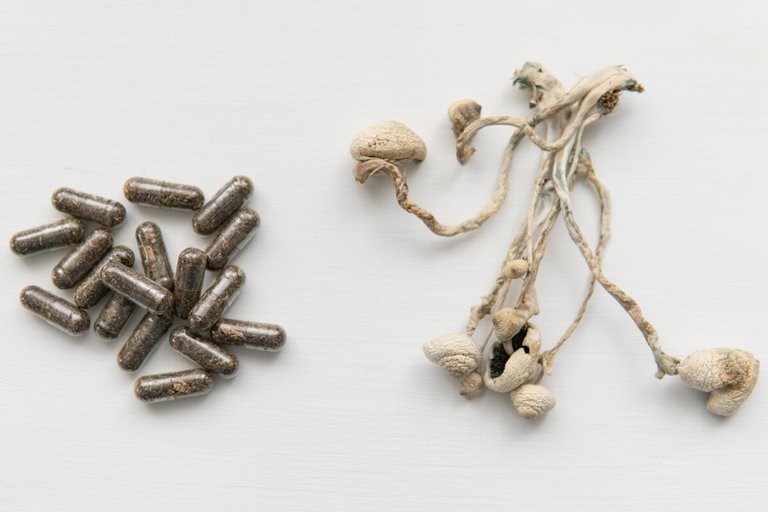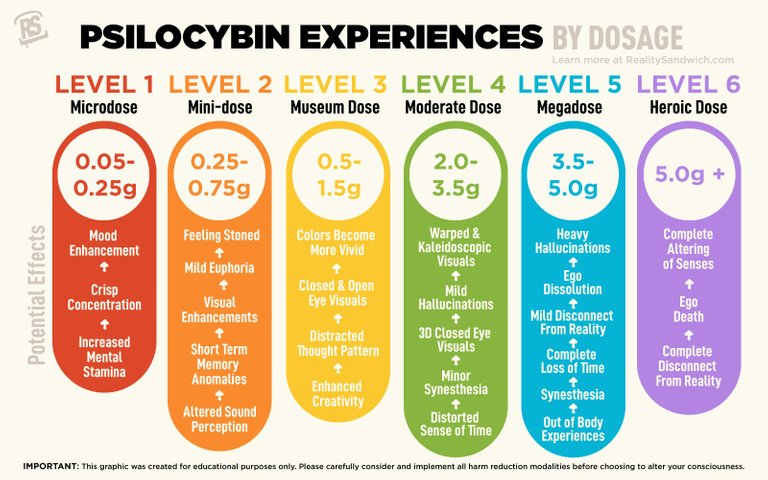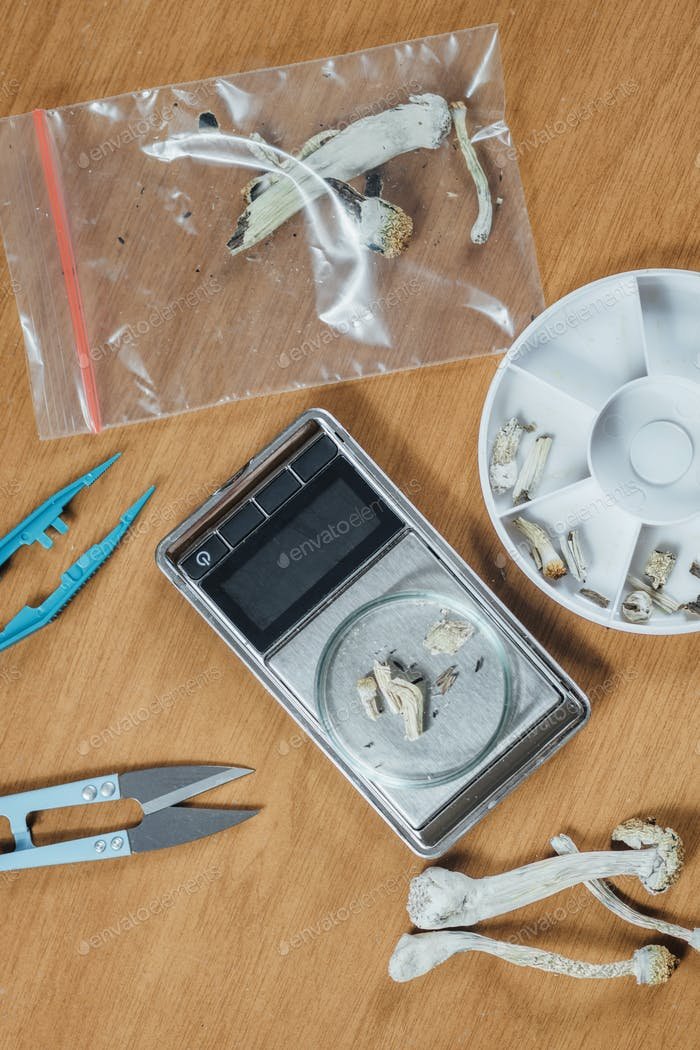Deepening the relationship between microdose use and heart problems // Aprofundando a relação do uso de microdose e problemas cardíacos
Today is the day to sit here and learn something new about the topic I have been studying in depth for some time now: microdoses of psychedelics for the treatment of anxiety, depression, motivation and attention deficit. I think I've briefly talked about the only "but" of microdosing in an old post, which is the possible long-term risks of cardiotoxicity, and that's what I want to delve into today. And I will do it in real time, while I research, understand and write here.

Source
Let's start with the popular phrase that makes the subject controversial: Long-term use of microdoses of psychedelics (2 to 5 years, for example) can compromise the heart valve, thanks to the serotoninergic receptor 5-HT2B.
Okay. First, it is important to explain a little about the main involved in this story, which is the neurotransmitter molecule Serotonin. Its correct name is 5-hydroxytryptamine, or 5-HT. And it has a number of different receptors, for example: 5-HT1a, 5-HT1b, 5-HT2a, among others. In the case of our object of studies regarding microdoses, I will use as protagonist the Psilocybe Cubensis, the famous magic mushroom that contains psilocybin. Psilocybin acts primarily and mainly on the 5-HT2a receptor which is one of the same main receptors activated by antidepressants. So far so good, this just shows that Psilocybin activates the same receptors as a "selective serotonin reuptake inhibitor" type drug for example, but it turns out that it also has some affinity for the 5-HT2b receptor.

Source
And here is the problem. The 5-HT2b receptor, despite having immense importance in the role of serotonergic receptor, has a close relationship with cardiac problems, more specifically a type of fibrosis in some of the heart valves. Now, pay attention: It is not the psychedelic substance that causes problems in the heart, it is the excess of 5-HT2b, which can happen with the use of: numerous psychiatric drugs and also with numerous drugs (such as MDMA, LSD, Ayahuasca, etc.) .

Source
But there is very little reliable material currently advocating this possibility. The studies were done in rats by just injecting high amounts of psilocin (a primary form of psilocybin) directly into the animal and then analyzing their hearts. We do not have the same analysis thought of in the traditional way of consumption of mushrooms (which is orally ingested), which will pass through the liver and be metabolized very differently, in addition to the fact that the dried mushroom contains not only psilocybin, it contains numerous other components that we still have very little information, such as: Norbaeocystina, Baeocystin and Aeruginascin. All alkaloids that certainly have psilocybin equalizing effect when ingested. Another important detail is that in this study presented with rats, scientists applied psilocin to rats daily for 12 weeks, this is absurdly far from any protocol for the use of a psychedelic substance when thinking about the typical use of the substance, whether in macrodose or microdose!

Source
What we have then are assumptions based on some limited studies that indicate a possible relationship between psilocybin and cardiotoxicity, but only when used in doses far beyond what has been used (for example: 1 to 5 grams sporadically, a few times a year ; 50mg to 300mg as a microdose within a "day in/day out" protocol, for example.) And given the observation of the society of users of this alternative medicine in the last three years, for example, we probably have no reports of heart problems. Is this guaranteed security? No, but it already shows that maybe this whole topic is still very poorly understood and that we have nothing to worry about, as long as we follow the protocols suggested for our own security.
In the future we may have answers, such as whether other alkaloids are important in the microdose process, whether psilocybin alone would be better or worse as a "medicine", have a clearer notion of long-term patients using psychedelics in general , and so on. Meanwhile, let's study with what we have in hand, right? Thanks for your reading and voting!

Source
Research sources for this content:
1, 2, 3 and 4
Thômas Helon Blum

Português
Hoje é dia de sentar aqui e aprender algo novo sobre o tema que venho estudando à fundo já faz algum tempo: as microdoses de psicodélicos para tratamento de ansiedade, depressão, motivação e déficit de atenção. Acredito que brevemente já falei sobre o único "porém" das microdoses em algum post antigo, que é os possíveis riscos de cardiotoxicidade à longo prazo, e é isso que quero me aprofundar hoje. E farei em tempo real, enquanto pesquiso, compreendo e escrevo aqui.

Source
Vamos começar pela frase popular que torna o assunto polêmico: O uso de microdoses de psicodélicos à longo prazo (2 à 5 anos, por exemplo) pode causar comprometimentos a válvula cardíaca, graças ao receptor serotoninérgico 5-HT2B.
Ok. Primeiramente é importante explicar um pouco sobre o principal envolvido dessa história que é a molécula neurotransmissora Serotonina. Seu nome correto é 5-hydroxytryptamine, ou 5-HT. E ele tem inúmeros receptores diferentes, por exemplo: 5-HT1a, 5-HT1b, 5-HT2a, entre outros. No caso nosso objeto de estudos à respeito de microdoses irei utilizar como protagonista o Psilocybe Cubensis, o famoso cogumelo mágico que contém psilocibina. A psilocibina age primariamente e principalmente no receptor 5-HT2a que é um dos mesmos principais receptores ativados pelos antidepressivos. Até aí tudo bem, isso só mostra que a Psilocibina ativa os mesmos receptores que um medicamento do tipo "inibidor seletivo de recaptação de serotonina" por exemplo, mas acontece que ele também tem certa afinidade com o receptor 5-HT2b.

Source
E aqui é que está o problema. O receptor 5-HT2b apesar de ter imensa importância no papel de receptor serotoninérgico, apresenta uma relação estreita com problemas cardiológicos, mais especificamente um tipo de fibrose em algumas das válvulas do coração. Agora, prestem atenção: Não é a substância psicodélica que causa problema no coração, é o excesso de 5-HT2b, que pode acontecer com o uso de: inúmeros medicamentos psiquiátricos e também com inúmeras drogas (como MDMA, LSD, Ayahuasca, etc).

Source
Porém existe muito pouco material de confiança atualmente defendendo essa possibilidade. Os estudos foram feitos em ratos apenas injetando diretamente no animal altas quantias de psilocina (uma forma primária da psilocibina) e depois analisando seus corações. Não temos a mesma análise pensada na forma tradicional de consumo de cogumelos (que é a ingestão por via oral), que passará pelo fígado e será metabolizada muito diferente, além de que o cogumelo seco contém não apenas psilocibina, ele contém inúmeros outros componentes que ainda temos muito poucas informações, como por exemplo: Norbaeocystina, Baeocystin e Aeruginascin. Todos alcaloides que certamente tem efeito equalizador da psilocibina quando ingeridos. Outro detalhe importante é que nesse estudo apresentado com ratos, os cientistas aplicaram psilocina nos ratos diariamente por 12 semanas, isso é absurdamente distante de qualquer protocolo de uso de uma substância psicodélica quando pensado no uso típico da substância, seja em macrodose ou microdose!

Source
O que temos então são suposições baseadas em alguns estudos limitados e que indicam possível relação entre a psilocibina e a cardiotoxicidade, porém apenas quando utilizada em doses muito além do que se tem utilizado (por exemplo: 1 a 5 gramas esporádicas, poucas vezes no ano; 50mg à 300mg como microdose dentro de um protocolo "dia sim/dia não", por exemplo.) E dado a observação da própria sociedade de utilizadores desse medicamento alternativo nos últimos três anos por exemplo, não temos provavelmente nenhum relato de problemas cardíacos. Isso é uma segurança garantida? Não, mas já mostra que talvez todo esse tema ainda é muito mal compreendido e que não temos com o que se preocupar, contanto que sigamos os protocolos sugeridos para nossa própria segurança.
Futuramente poderemos ter respostas, como por exemplo se os outros alcalóides tem importância no processo da microdose, saber se a psilocibina isolada seria melhor ou pior como um "medicamento", ter uma noção mais nítida sobre pacientes de longo prazo no uso de psicodélicos em geral, e assim por diante. Enquanto isso, vamos estudando com o que temos em mãos, não é? Obrigado pela sua leitura e voto!
 Source
SourceFontes de pesquisa para esse conteúdo:
1, 2, 3 e 4
Thank you so much for this life saving info...
Microdosing is interesting, but you cannot say how many of the substances are in a organic mushroom. This is a general problem and the reason I would take better more than less of this interesting tablets. You are in Brasil?
Sure, this is a problem. Lsd is more exact on quantity, but, more complex to find a real substance. And yes, in from Brasil. :)
I ❤️ Brasil. Universo Paralello era lindo. Muitos amigos ahi.